
When reading the life stories of people who achieved a great deal in their lives, it is tempting to ask, ‘How did they do it?’ After all, they only had 24 hours in each day, and 365 days a year. Many of the great achievers were born before modern technology was developed. They did not have facilities like electric light or computers to assist them. Also, many of them did not live long lives. Mozart died when he was only 35. William Shakespeare died when he was 52. Both used their time well to achieve a great deal, in a short time. Of course, in days gone by, the average life expectancy was much lower than it is today. Nevertheless, the contributions of those in our Amazing People Library are exceptional.
The following represents some of the points I have noted by way of summary and learning, though you will be able to add others:
Those who became amazing achievers were people who discovered and developed a strong purpose in their lives. It became the defining aspect of their work. For some, it was a political purpose to create better social conditions. For some, it was a religious purpose, and for some, their purpose was to be the best in their chosen sport.
It is important that students are taught about purpose, so that they can think about what they wish to achieve in life. This can be done by introducing the life stories of outstanding achievers and asking students who they feel they identify with.

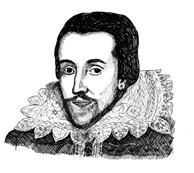 Ability is one thing, but a high level and high quality of production is what counts. The sheer quantity of the work produced by Shakespeare speaks for itself. The same is true for Tchaikovsky, despite the fact that in his early years he was trying to become a lawyer, and worked in a legal office. Although they were both geniuses in their respective fields, they did not take their gifts for granted.
Ability is one thing, but a high level and high quality of production is what counts. The sheer quantity of the work produced by Shakespeare speaks for itself. The same is true for Tchaikovsky, despite the fact that in his early years he was trying to become a lawyer, and worked in a legal office. Although they were both geniuses in their respective fields, they did not take their gifts for granted.
By applying themselves, they completed assignments, rather than just playing around with ideas. This principle applies to most, if not all, of the great achievers.
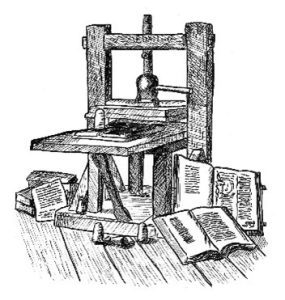 Most of the great achievers faced a number of difficulties and obstacles in their work. Johannes Gutenberg, despite falling into debt many times, continued with his design and development of the printing press. He is just one of the examples of those who refused to give up, despite the problems he faced. He is just one of the examples of those who refused to give up, despite the problems he faced.
Most of the great achievers faced a number of difficulties and obstacles in their work. Johannes Gutenberg, despite falling into debt many times, continued with his design and development of the printing press. He is just one of the examples of those who refused to give up, despite the problems he faced. He is just one of the examples of those who refused to give up, despite the problems he faced.
In some cases, it could be said that their determination to succeed became an obsession. This was certainly the case with Gordon Gould, who spent many years in the courts of law to prove his trademark case regarding his invention. Others pursued their ideas in difficult circumstances. Mozart was still writing music, trying to complete another masterpiece, as he lay dying. Nikola Tesla travelled from country to country in poor circumstances, looking for the support and resources to make his amazing breakthroughs. The story of his travels and problems en route are as interesting as his actual technical achievements.
Certainly, without the determination and persistence of the individuals against the odds, many great achievements would never have been made.
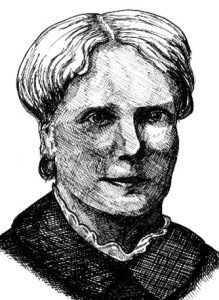 Often the achievers were faced with doubters who said they were attempting the impossible and it could not be done. Some, like Galileo, were faced by priests who threatened them if they continued. It did not stop Galileo, or others, who knew they were pursuing scientific truths. The same is true in other fields. The women who tried to become doctors in the late 19th Century found consistent opposition from men in the profession, and often little interest amongst potential patients. They asked what a woman could contribute to medicine. Elizabeth Blackwell showed them exactly what women could contribute! (It may be akin to the concern some people have today, if they hear that a woman pilot is flying the plane on which they are travelling!)
Often the achievers were faced with doubters who said they were attempting the impossible and it could not be done. Some, like Galileo, were faced by priests who threatened them if they continued. It did not stop Galileo, or others, who knew they were pursuing scientific truths. The same is true in other fields. The women who tried to become doctors in the late 19th Century found consistent opposition from men in the profession, and often little interest amongst potential patients. They asked what a woman could contribute to medicine. Elizabeth Blackwell showed them exactly what women could contribute! (It may be akin to the concern some people have today, if they hear that a woman pilot is flying the plane on which they are travelling!)
 Some people work hard, and are determined, but they do not always produce high quality results. The people who I have studied were achievers because they delivered. Scientists, like Nicolas Tesla and Gordon Gould would not give up until they had produced a solution. They were not just doing research for the sake of knowledge. Charles Babbage established a basic computer. However, he had difficulties, as few people took an interest in his work in the early stages. Therefore, his system was not put into wider use until much later.
Some people work hard, and are determined, but they do not always produce high quality results. The people who I have studied were achievers because they delivered. Scientists, like Nicolas Tesla and Gordon Gould would not give up until they had produced a solution. They were not just doing research for the sake of knowledge. Charles Babbage established a basic computer. However, he had difficulties, as few people took an interest in his work in the early stages. Therefore, his system was not put into wider use until much later.
Once it could be seen that there were real outputs and results to be gained, people put more time and energy into the systems.
That led to the amazing technology that we have today, based on Babbage’s original breakthrough.
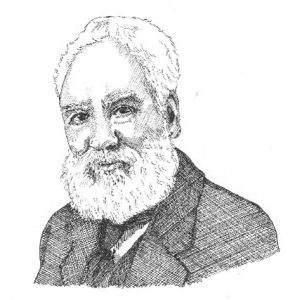 It was not just about great ideas and art. It was also about organization and management. Some of the great achievers were able to make their designs come to life by organizing others through teamwork. Michelangelo learnt how to manage large projects within budgets and timelines. Not all the achievers had this level of organizational ability, but they all showed what they could do individually. Alexander Graham Bell was an inventor of many systems. However, by themselves, those inventions may not have been known or widely used. Bell developed the ability to set up organizations to implement his ideas. In particular, his name became the brand of a major telephonic organization in the USA, despite the fact that there were disputes over who invented the telephone.
It was not just about great ideas and art. It was also about organization and management. Some of the great achievers were able to make their designs come to life by organizing others through teamwork. Michelangelo learnt how to manage large projects within budgets and timelines. Not all the achievers had this level of organizational ability, but they all showed what they could do individually. Alexander Graham Bell was an inventor of many systems. However, by themselves, those inventions may not have been known or widely used. Bell developed the ability to set up organizations to implement his ideas. In particular, his name became the brand of a major telephonic organization in the USA, despite the fact that there were disputes over who invented the telephone.
The essence of his success was in finding sponsors and managers to set up organizational systems, within which people could work, to provide excellent customer service.
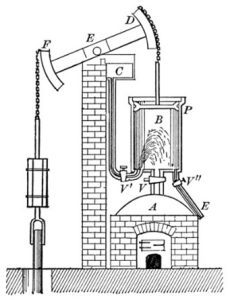 The great achievers, in the main, were successful because they learnt from their actions. If things were not going well, then they looked at other options. In that sense, they were innovators. Some of the achievers gained formal training but most learnt from their own, and other peoples, practice. It was hands-on learning. Thomas Newcomen, for example, was not trained in an engineering school.
The great achievers, in the main, were successful because they learnt from their actions. If things were not going well, then they looked at other options. In that sense, they were innovators. Some of the achievers gained formal training but most learnt from their own, and other peoples, practice. It was hands-on learning. Thomas Newcomen, for example, was not trained in an engineering school.
He learnt by working on machines in the mines. Indeed, William Shakespeare, as far as we know, had no formal training as a playwright. The great achievers showed there was more to be learnt from doing. No doubt they watched others, listened and learnt in the process. But most of all, they learnt their trades by applying their ideas in practice. In that way they gained personal feedback on what would and what would not work. They were action learners. Thinking and talking were not sufficient. The real test was application.

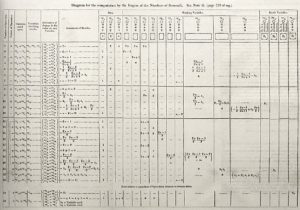 It is interesting to note the motivational factors that influenced people in their work. Some people were driven by their religious beliefs and the feeling that they had been called to help the poor. For others, the driving forces were intellectual interests, and trying to discover how things worked. Charles Babbage worked with Ada Lovelace, who enjoyed the challenge of mathematics and its applications. Their work on the early form of the computer was like a puzzle that she wanted to solve. In the field of music, both Mozart and Tchaikovsky were driven from within to express their beautiful music.
It is interesting to note the motivational factors that influenced people in their work. Some people were driven by their religious beliefs and the feeling that they had been called to help the poor. For others, the driving forces were intellectual interests, and trying to discover how things worked. Charles Babbage worked with Ada Lovelace, who enjoyed the challenge of mathematics and its applications. Their work on the early form of the computer was like a puzzle that she wanted to solve. In the field of music, both Mozart and Tchaikovsky were driven from within to express their beautiful music.
It was not primarily money or the hope of fame that drove them forward. They had gifts and wanted to express them.
 Sometimes, people get caught in the middle of forces that are not of their own making. In politics, this is often the case. For example, President Lincoln took a stand against the secession of a number of American states, and also slavery. Having done so, he was committed to seeing through the actions required. It led to memorable words and deeds.
Sometimes, people get caught in the middle of forces that are not of their own making. In politics, this is often the case. For example, President Lincoln took a stand against the secession of a number of American states, and also slavery. Having done so, he was committed to seeing through the actions required. It led to memorable words and deeds.
Many great achievements emerge as a result of situational forces. War, for example, has forced people into thinking about new ideas. Leonardo da Vinci’s and Michelangelo’s work was influenced by sponsors who wanted better defence systems. In more recent times, Enrico Fermi and others contributed to the development of nuclear weapons, as a result of situations of conflict.
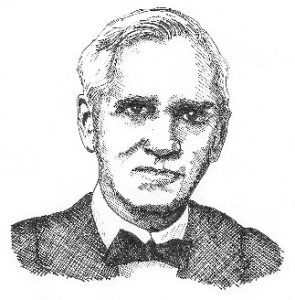 Some people come across an idea and develop it, when many others would ignore it. Alexander Fleming noticed an unusual occurrence in his laboratory. He observed, by chance, that bacteria on one of the experiments had been attacked by unexplained phenomena. He gave the name ‘penicillin’ to the reaction.
Some people come across an idea and develop it, when many others would ignore it. Alexander Fleming noticed an unusual occurrence in his laboratory. He observed, by chance, that bacteria on one of the experiments had been attacked by unexplained phenomena. He gave the name ‘penicillin’ to the reaction.
Later, the scientists, Florey and Chain, found out how to develop this into a life-saving drug. In one sense, all achievers seize their chances. They have the perception to see ahead, and the determination to do something about it.
That is why understanding the psychology of great achievements is important. It should lead to a more focused approach to developing education, attitudes and creative processes, consistent with innovation.
These, and other factors, lead to greatness and amazing achievements. However, in this summary, I have not put much focus on money. My view is that the great achievers pursued their ideas because they believed in them. No doubt, many saw that if they succeeded, it could lead to wealth. But, their original motivation came from personal interest. They followed their star, or were driven by the needs and requirements of their situation. All of them did amazing things and deserve their accolades, as they have enriched our lives.
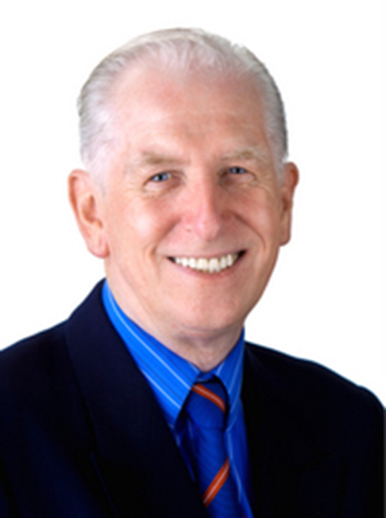
Dr Charles Margerison, President and founder of Amazing People Worldwide, is a Psychologist. He is also President of Amazing People Schools. Dr Margerison has consulted widely for major organizations in the fields of organizational and educational psychology. He was previously Professor of Management at Cranfield University, UK, and the University of Queensland, Australia. He founded Amazing People Worldwide in 2006 and is supported by a dedicated global team. He previously co-founded Emerald Publications, and Team Management Systems and has authored more than 30 books. Dr Charles is also the creator of ‘Can Do Kids Worldwide, a virtual music group that helps students to learn about countries and cultures through music. He has also developed Imagineland, for early learners. You can follow him on Linked in .
For more information, please email info@amazingpeopleworldwide.com
Websites:



Copyright © 2021. Amazing People Worldwide.
All Rights Reserved.
This site is protected by reCAPTCHA and the Google
Privacy Policy and Terms of Service apply.



